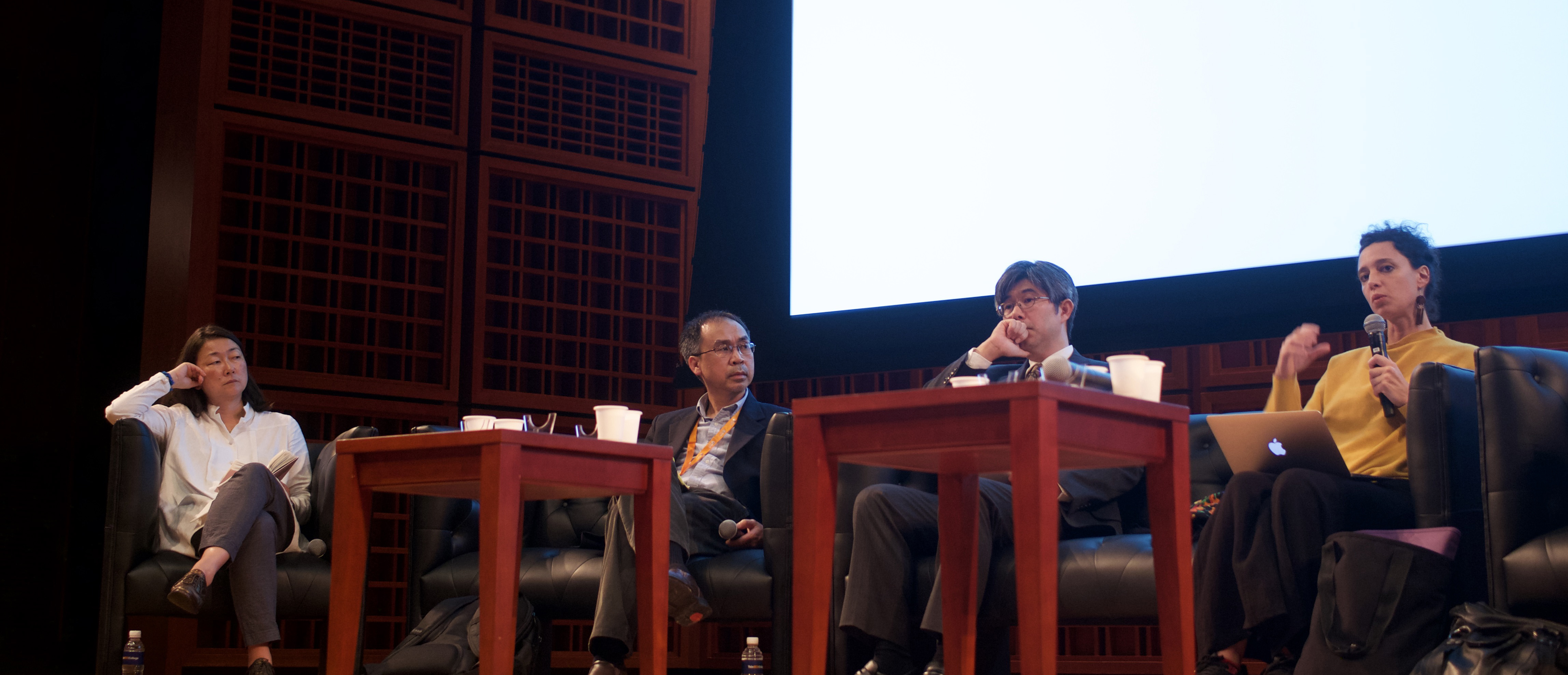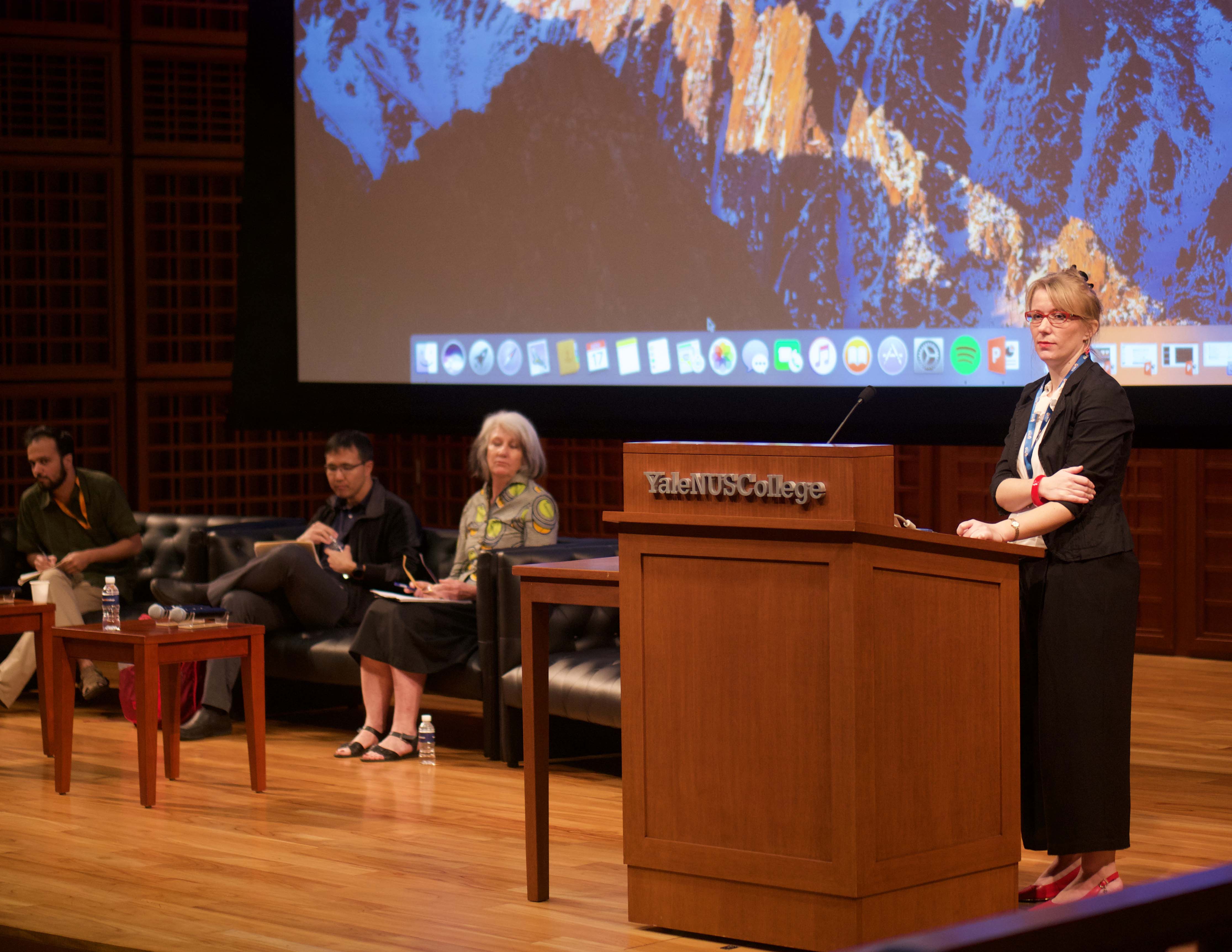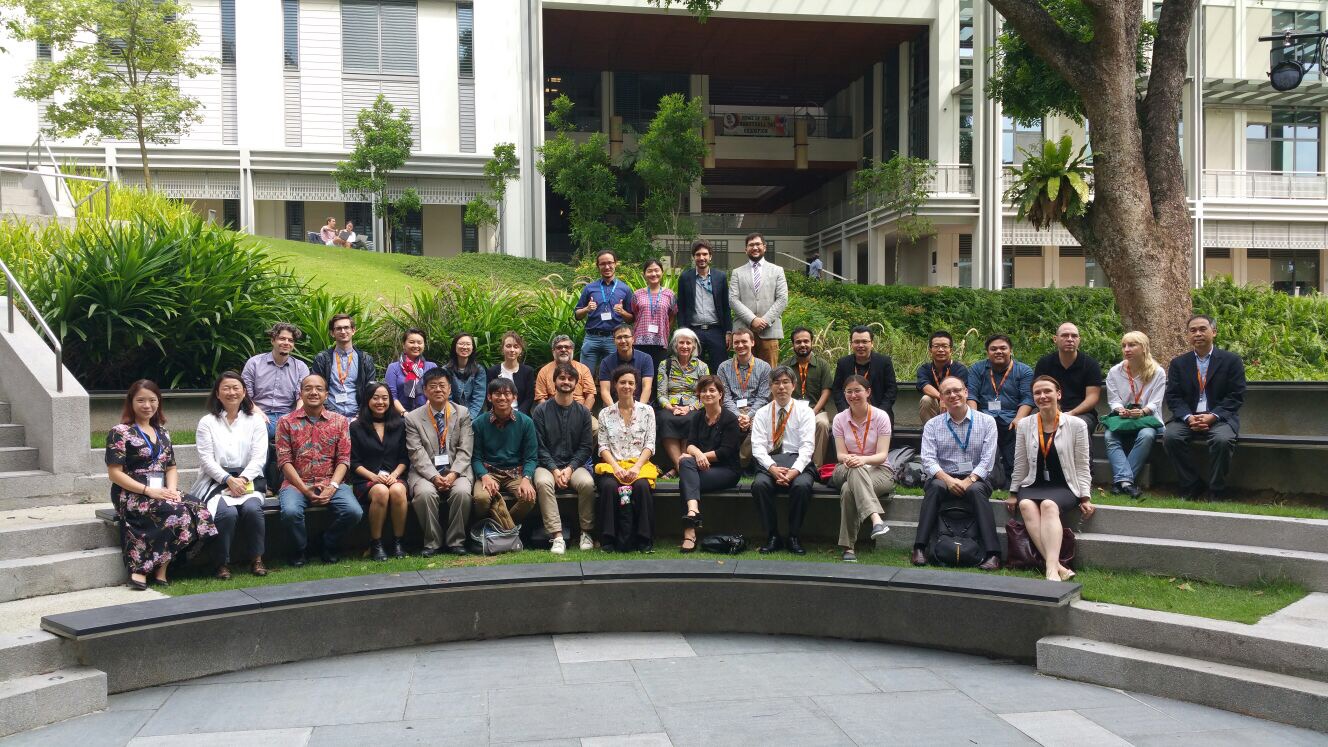Yale-NUS faculty convene conference on ‘The Asian Arc of the Russian Revolution’

On 16 and 17 November 2017, Yale-NUS College welcomed historians and researchers in the field of Russo-Asian history for a two-day conference on the trajectory of the Russian Revolution in Asia.
Titled ‘The Asian Arc of the Russian Revolution: Setting the East Ablaze?’, the conference was co-convened by Yale-NUS Associate Dean of Faculty (Faculty Development) Professor Naoko Shimazu.
According to Professor Shimazu, the conference sought to examine the Revolution from the perspective of Russia’s Asian population and Asian neighbours.
“On the centenary of the 1917 Russian Revolution, we wanted historians to engage with the global dimensions of the revolution, particularly on its impact in Asia. By working with colleagues from the Centre d’histoire de Sciences Po who specialise in Russia and Transcaucasia, we were able to come up with an expansive vision of what constituted ‘Asia’, ranging from Transcaucasia, Northeast Asia, Southeast Asia and South Asia,” Professor Shimazu explained.
“We managed to engender a unique forum where specialists on Central Asia could exchange views with Southeast Asian specialists, for example, to discuss the impact of the revolution on Islam in the respective regions, and so on.”
Professor Shimazu is a global historian with a regional specialisation of East Asia writ large, whose research include new approaches to the study of empire. Apart from serving as Associate Dean of Faculty at Yale-NUS College, she is also Honorary Professor in the Department of History at the National University of Singapore (NUS) and Fellow of the Royal Historical Society.
The conference organising committee also included two researchers from NUS, Dr Yuexin Rachel Lin and Mr Khasan Redjaboev, and three from the Centre d’histoire de Sciences Po, Professor Sabine Dullin, Dr Etienne Peyrat and Ms Aude-Cecile Monnot.
According to Dr Lin who is a postdoctoral fellow at the Lee Kuan Yew School of Public Policy, the conference is the product of a joint research project grant funded equally by Universite Sorbonne Paris Cite and NUS.
“We submitted a proposal for the grant in February and were awarded it in April. The conference marks the centenary of the 1917 revolutions and, unlike other commemorative events taking place this year, focuses on their impact across Asia,” she explained.
The conference also involved both faculty and students at Yale-NUS, who participated enthusiastically in the conference.
Assistant Professor of Humanities (History) Claudine Ang, who specialises in Southeast Asian history, chaired a session on the revolution’s legacy in South and Southeast Asia while Assistant Professor of Humanities (History) Mate Rigo chaired a session on the impact in Central Asia and the Caucasus. Assistant Professor of Humanities (Art History) Maria Taroutina also chaired a session titled “The Revolution in Images, Places, Texts, Ideas”.

Dr Taroutina’s session was particularly insightful for Kathy Poh (Class of 2020), whose interests intersect artistic culture and expression and political history.
“Most of what I knew about the arts in Asia addressed tensions within countries, or discussed ideas in relation to events like decolonialisation and war but this conference offered a perspective that I had not previously thought of nor knew about before,” she shared.
Rachel Hau (Class of 2018) and Abdul Sharapov (Class of 2021) also attended the conference as student assistants who helped with managing the event.
Rachel, a History major whose interest focuses on empire in Southeast Asia, was interested in the conference’s focus on the Russian Revolution’s impact in Asia. “This seemed to be a shift from the conventional focus on Europe and to see how the Russian Revolution has had an impact on other countries in the region was eye-opening for me,” she shared.
For Abdul, who originally hails from Uzbekistan, the conference was a valuable opportunity to connect with historians who specialise in a field of history closely connected to his own.
“The conference touched upon a major turning point in the history of my people about a by-product of the Russian revolution often overlooked in the usual narrative. It’s hard to find research on our region at this point in time so the opportunity to connect with the few historians focusing on this was too great to ignore,” he shared.

Presenters at the conference hail from around the world and include academics from institutions in different regions such as University of California, Berkeley (US), Beijing Normal University (China), Jawaharlal Nehru University (India), Thammasat University (Thailand), Tokyo University (Japan) and Ruhr University Bochum (Germany).





